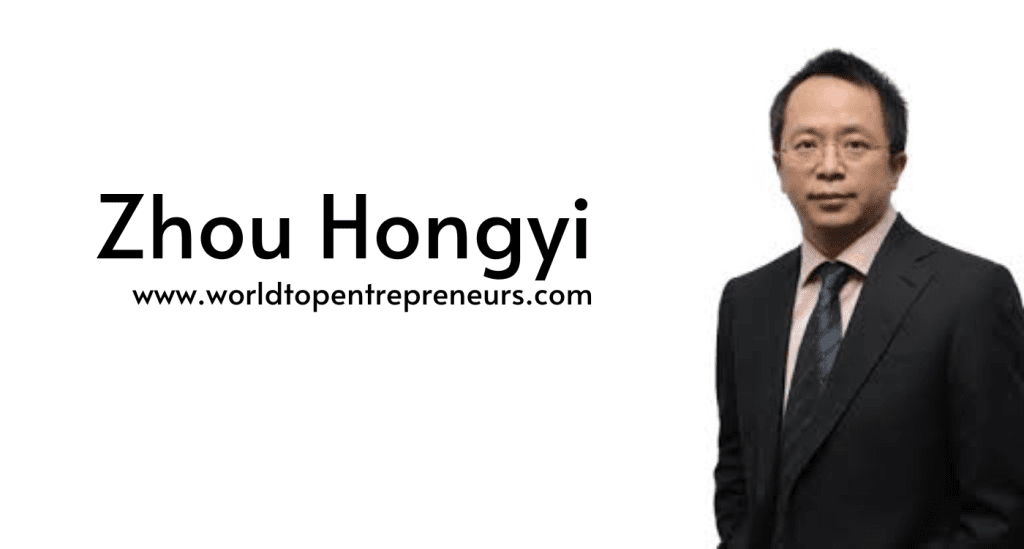Zhou Hongyi, the founder and CEO of Qihoo 360, is a prominent figure in China’s technology landscape. Known for his outspoken personality and pioneering spirit, Zhou has made significant contributions to the cybersecurity industry and the broader tech ecosystem. This article explores Zhou Hongyi’s life, his entrepreneurial journey, his leadership style, and the impact he has had on Qihoo 360 and the tech world.
Early Life and Education
Zhou Hongyi was born in 1970 in Hubei Province, China. Growing up in a modest family, Zhou exhibited a keen interest in technology from a young age. His curiosity and passion for electronics and computing set him on a path that would eventually lead to a remarkable career in the tech industry.
Zhou attended Xi’an Jiaotong University, one of China’s top engineering schools, where he earned a degree in systems engineering. His time at university was marked by a deep engagement with computer science and software development, laying the groundwork for his future endeavors.
The Birth of 3721
After graduating, Zhou Hongyi began his career in the tech industry. His first significant entrepreneurial venture was the founding of 3721, a Chinese-language search engine, in 1998. At a time when the internet was still in its nascent stages in China, 3721 aimed to simplify web searches for Chinese users by allowing them to use Chinese characters instead of English.
3721 quickly gained popularity, and Zhou’s innovative approach to search technology caught the attention of major players in the industry. In 2003, Yahoo! acquired 3721 for a substantial sum, marking Zhou’s first major success in the tech world. This acquisition not only provided Zhou with financial resources but also established his reputation as a forward-thinking entrepreneur.
Founding Qihoo 360
With the success of 3721 behind him, Zhou Hongyi set his sights on a new challenge: cybersecurity. In 2006, he founded Qihoo 360, initially as a provider of antivirus software. The company’s name, “360,” symbolizes comprehensive protection, reflecting Zhou’s vision of offering holistic security solutions.
Qihoo 360 quickly disrupted the cybersecurity market with its innovative business model. Unlike traditional antivirus software companies that charged for their products, Qihoo 360 offered its software for free, monetizing through advertising and premium services. This freemium model democratized access to cybersecurity tools, making them available to millions of users who might not have been able to afford them otherwise.
Leadership Style and Philosophy
Zhou Hongyi’s leadership style is characterized by his boldness, resilience, and willingness to challenge the status quo. He is known for his direct communication style and his readiness to engage in public debates on industry issues. This candor has earned him both admirers and critics, but it has also established him as a thought leader in the tech community.
A key aspect of Zhou’s philosophy is his belief in the power of innovation to drive societal progress. He encourages a culture of creativity and experimentation within Qihoo 360, fostering an environment where employees are empowered to think outside the box and develop groundbreaking solutions.
Zhou’s approach to business is also deeply customer-centric. He understands that the success of any technology product hinges on its ability to meet the needs and expectations of users. This focus on user experience has been a driving force behind Qihoo 360’s product development and marketing strategies.
Qihoo 360’s Rise to Prominence
Under Zhou Hongyi’s leadership, Qihoo 360 expanded rapidly, diversifying its offerings beyond antivirus software. The company introduced a range of products, including web browsers, mobile apps, and smart hardware, all designed to enhance cybersecurity and digital experiences for users.
One of Qihoo 360’s flagship products is the 360 Safe Browser, which gained widespread adoption in China due to its robust security features and user-friendly interface. The browser’s success further solidified Qihoo 360’s position as a leading player in the tech industry.
In 2011, Qihoo 360 went public on the New York Stock Exchange, raising significant capital to fuel its growth. The IPO was a major milestone for the company, highlighting its rapid ascent and the confidence investors had in its future prospects.
Challenges and Controversies
Zhou Hongyi’s journey with Qihoo 360 has not been without challenges and controversies. The competitive nature of the tech industry means that clashes with rivals are inevitable. Zhou’s outspoken personality and aggressive business tactics have sometimes led to public disputes with other tech leaders and companies.
One notable controversy involved a legal battle with Tencent, one of China’s largest internet companies. The dispute centered around allegations of unfair competition and monopolistic practices, drawing significant media attention. Despite the legal and reputational challenges, Zhou navigated the situation with his characteristic resilience, ultimately maintaining Qihoo 360’s market position.
The cybersecurity landscape itself presents constant challenges. As cyber threats evolve, Qihoo 360 must continuously innovate to stay ahead of malicious actors. Zhou’s forward-thinking approach and commitment to staying at the cutting edge of technology have been crucial in addressing these challenges.
Personal Life and Philanthropy
Despite his high-profile career, Zhou Hongyi maintains a relatively private personal life. He is married and has children, and he often emphasizes the importance of family in his life. His success has not led to a detachment from his roots; instead, he remains grounded and focused on his work and personal responsibilities.
Philanthropy is an important aspect of Zhou’s life. He believes in leveraging his wealth and influence to give back to society. Over the years, he has donated to various causes, including education, disaster relief, and healthcare. His philanthropic efforts reflect his commitment to improving the lives of others and contributing to societal development.
One significant philanthropic initiative is the Zhou Hongyi Education Foundation, which supports educational programs and scholarships for underprivileged students. Through this foundation, Zhou aims to provide opportunities for the next generation of innovators and leaders.
The Future of Qihoo 360
Looking ahead, Zhou Hongyi remains focused on steering Qihoo 360 toward continued growth and innovation. The company is exploring new frontiers in cybersecurity, artificial intelligence, and the Internet of Things (IoT). Zhou’s vision includes developing integrated security solutions that address the complex and evolving threats of the digital age.
Qihoo 360 is also expanding its global footprint, seeking to bring its innovative products and services to international markets. This global expansion aligns with Zhou’s ambition to position Qihoo 360 as a leading global cybersecurity player.
In addition to technological advancements, Zhou is committed to maintaining Qihoo 360’s customer-centric approach. He believes that understanding and anticipating user needs is key to sustaining the company’s competitive edge. By staying attuned to market trends and user feedback, Qihoo 360 can continue to deliver products that resonate with consumers.
Conclusion
Zhou Hongyi’s journey from a curious young student to a tech industry titan is a story of innovation, resilience, and visionary leadership. His ability to navigate the complexities of the tech world, coupled with his bold and customer-focused approach, has propelled Qihoo 360 to great heights. Through his work, Zhou has not only transformed the cybersecurity landscape but also inspired a new generation of entrepreneurs and innovators.
As Qihoo 360 continues to evolve under his leadership, Zhou’s legacy as a trailblazer in the tech industry and a dedicated philanthropist will undoubtedly endure. His story serves as a testament to the power of innovation and determination in achieving remarkable success and making a meaningful impact on the world.





















